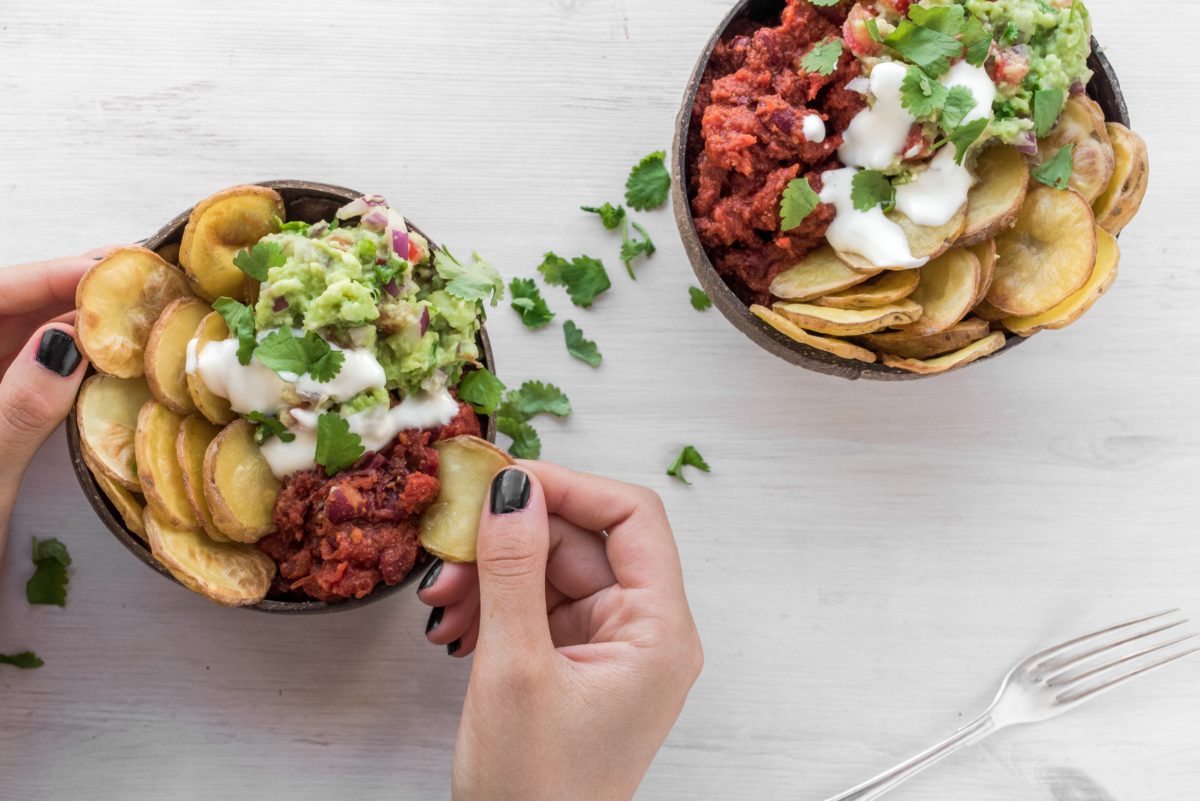Eating a balanced diet isn’t always easy – particularly when you’re on a budget. Nutritious food can be expensive, and with the increased cost of living, you might be feeling the pinch more than ever before.
But the good news is, there are ways you can save money and still eat well. By making a few small changes to your shopping and cooking habits, you can make your money go further.
1. Switch up your proteins
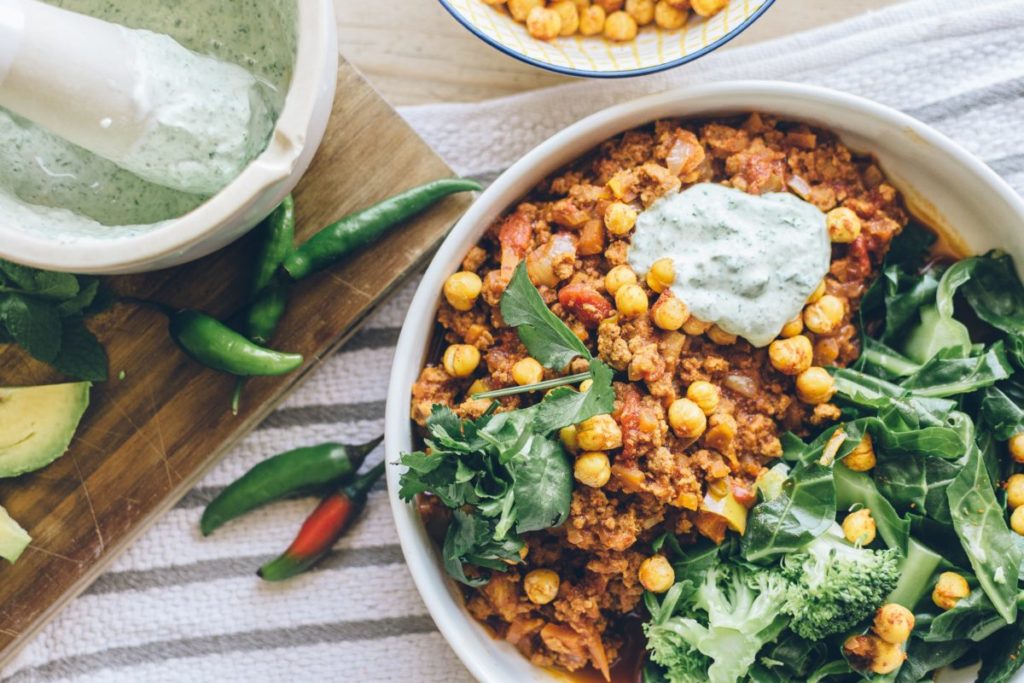
Plant proteins like beans, lentils, chickpeas and tofu can offer a more affordable way to get protein into your diet – and there are health benefits to eating less meat too. Pulses are lower in saturated fat, so they are a good choice for your heart.
Swap your meat for lentils in curry, chilli, enchiladas, bolognese, lasagne and even cottage pie. Add pinto beans to your plate in burritos or as a side of refried beans. You can buy many beans and lentils in tins, reducing the cooking time and cost.
2. Buy whole foods
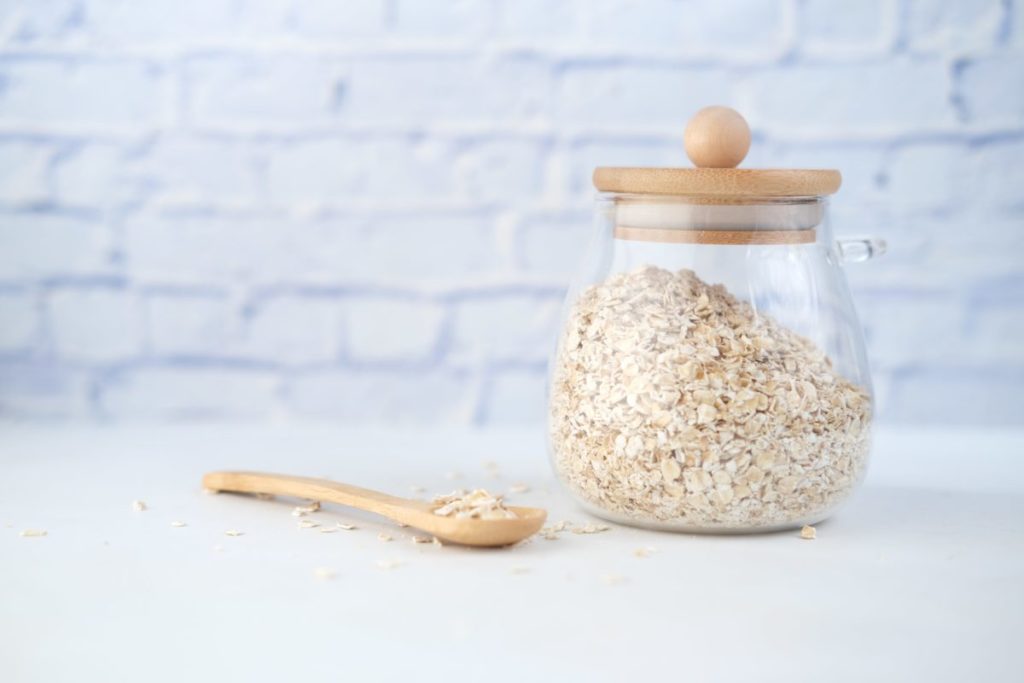
The more processed food is, the more expensive it tends to be. While prepared goods have their uses and can save time, they often cost a lot more.
Instead of buying pre-prepared salad – make your own. Opt for a whole lettuce instead of ready-cut and whole blocks of cheese rather than grated. These little changes will really add up over the course of the year.
Oats are also much cheaper than processed cereals. Plus, they’re the best source of slow-burning carbs, high in magnesium potassium and vitamin B6. You can mix them into yoghurts or try overnight oats so you can have breakfast on the go.
3. Swap your snacks
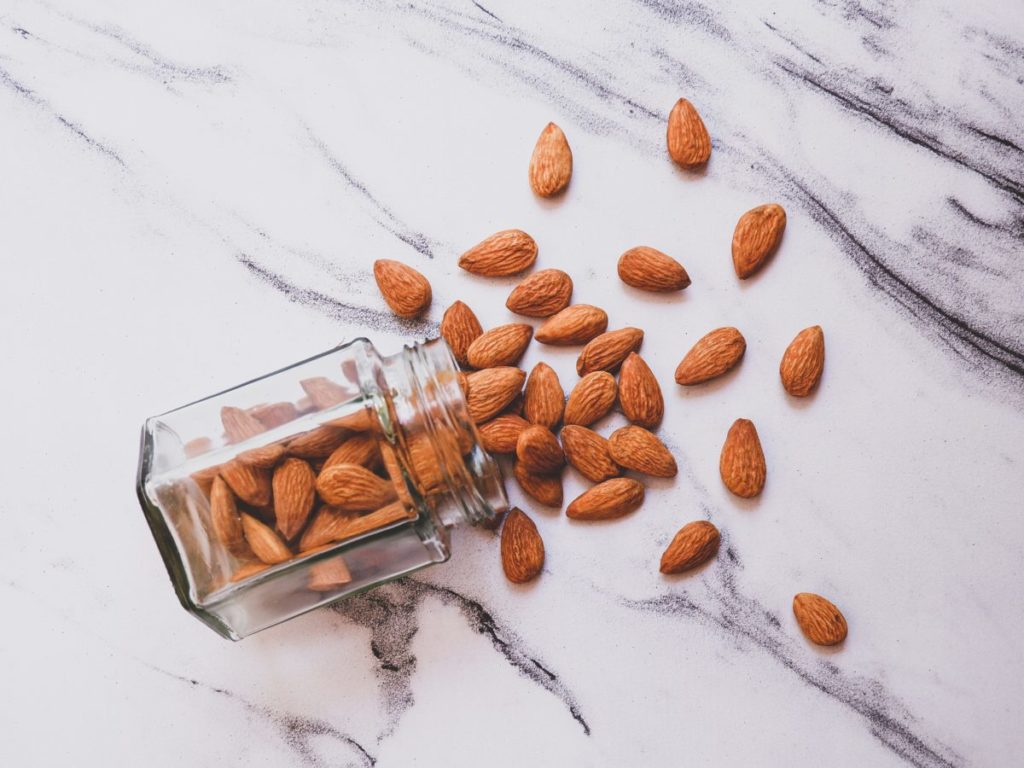
Making better decisions when it comes to snacking can help you to feel better and feel fuller for longer.
Nuts are a good source of protein and contain magnesium, helping to lower cortisol (stress) levels. Coconut can also help to regulate blood pressure during times of stress.
Bananas contain vitamin B6, which releases serotonin and helps to regulate blood sugar levels. Dried fruit is also a great choice for a healthy sugar lift because they’re full of antioxidants, fibre, iron and potassium.
And don’t forget the humble apple. It’s a hunger-busting snack rich in fibre and antioxidants.
4. Cook larger portions

Cooking larger meals can save you both time and money. Your leftovers can be used for your lunch the next day, be frozen to enjoy later, or reused in stews and stir-fries.
Having leftovers for the next day is a great way to stop you from spending money on your lunch break or eating out on the evening.
5. Don’t shop when you’re hungry

If you shop hungry, you’re more likely to buy those impulse purchases you don’t really need. You might find yourself reaching for processed foods that are less nutritious than whole foods, which isn’t great for the purse either.
This isn’t always easy if you’re heading straight to the shops from work, so think about introducing a late afternoon snack like a banana to your day to avoid the hunger pangs.
6. Do the maths
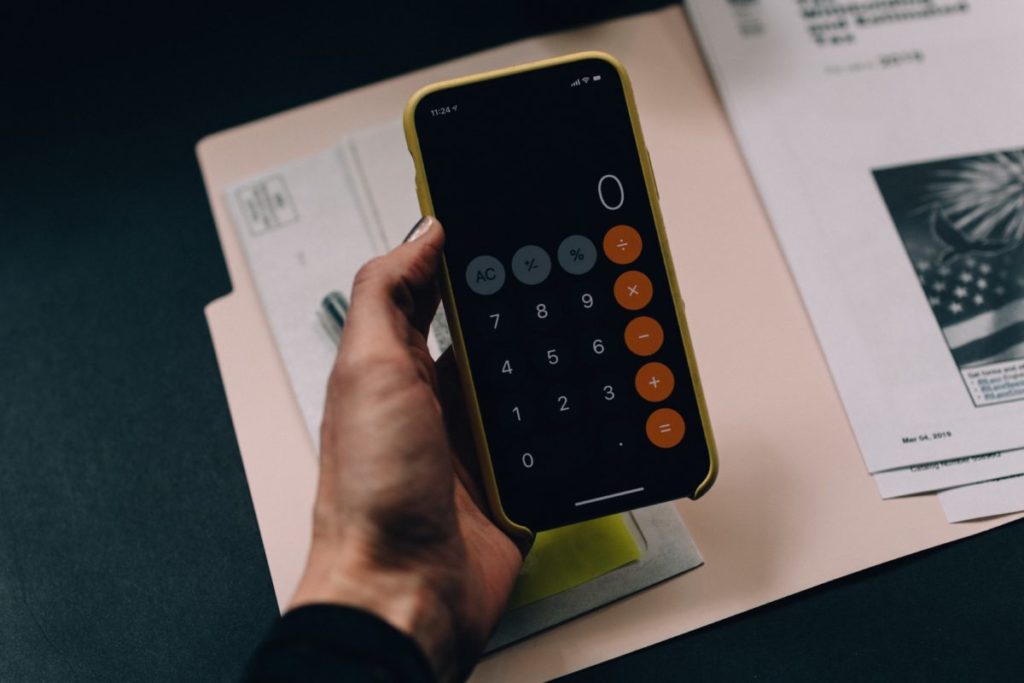 Just because something is on offer, doesn’t automatically mean it’s the best value. For instance, you might see a small tub of butter on offer at a price which seems like a good deal – but the larger tub of butter may actually still be cheaper per gram.
Just because something is on offer, doesn’t automatically mean it’s the best value. For instance, you might see a small tub of butter on offer at a price which seems like a good deal – but the larger tub of butter may actually still be cheaper per gram.
Take the time to do the maths while you shop to work out what actually gives you more for your money. Sure, it takes a little more time, but when you’re on a budget every penny counts.
If you’re a TU student, Blackbullion has lots of great money saving articles and even has a budget calculator.
7. Make a list – and stick to it
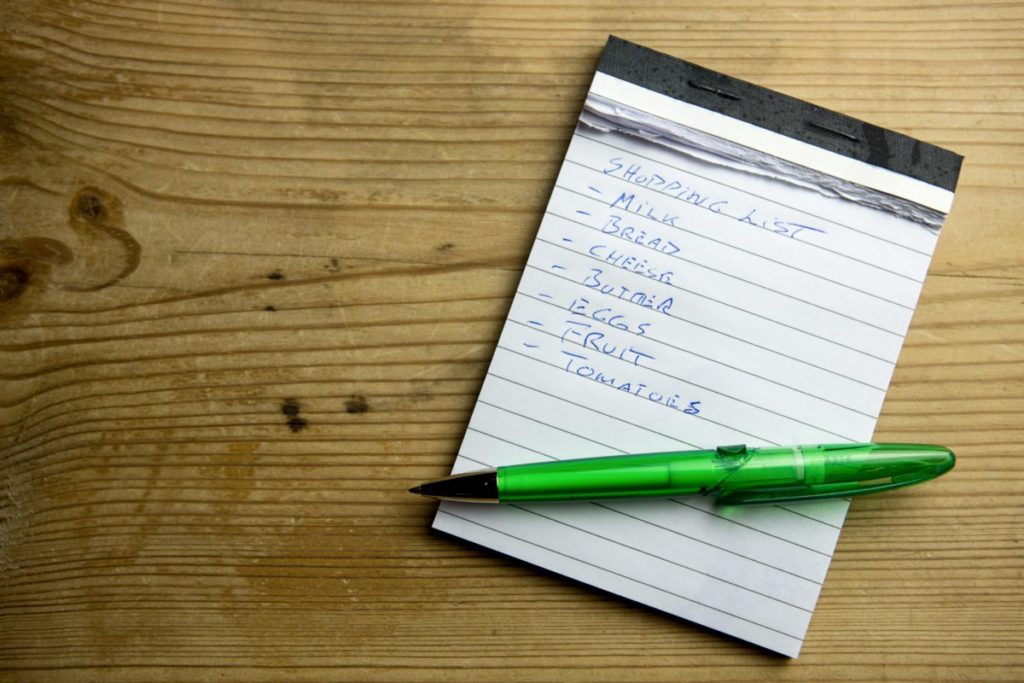
It sounds obvious but take time to plan your meals before you go shopping. Think about each meal and the ingredients you need and make a list – it’s a good idea to meal plan with similar ingredients so you use up what you buy. By knowing exactly what you need, you’ll be able to shop smarter and reduce food waste.
8. Keep some recipe staples
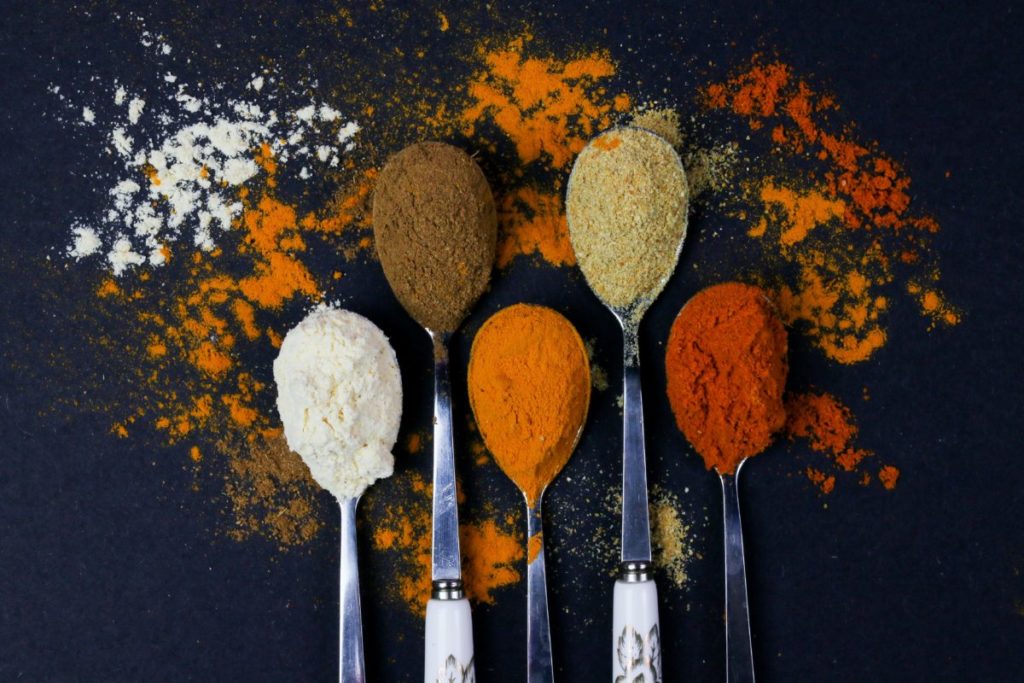 Using similar ingredients in your meals can help you save money. Always keep some recipe staples in your cupboard, like dried oregano, vegetable stock, garlic powder, paprika, chilli flakes, curry powder and tinned tomatoes.
Using similar ingredients in your meals can help you save money. Always keep some recipe staples in your cupboard, like dried oregano, vegetable stock, garlic powder, paprika, chilli flakes, curry powder and tinned tomatoes.
From lasagne to chilli and pasta bakes to curries, there’s a lot you can make with a few simple ingredients.
9. Buy frozen
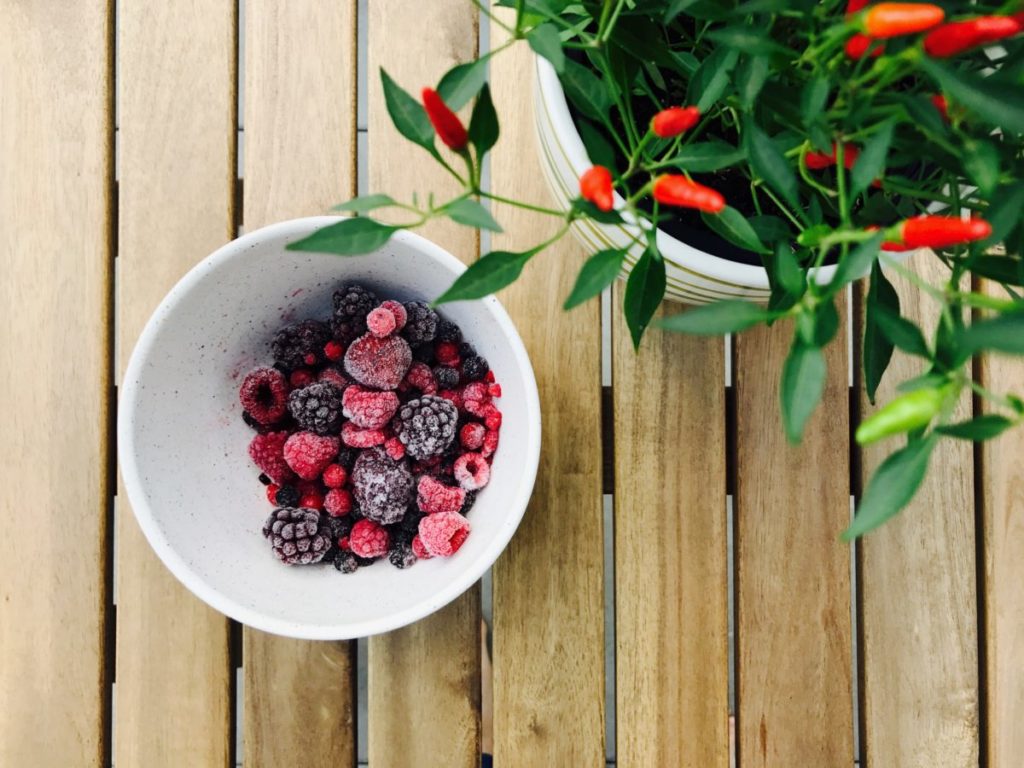 There’s a misconception that frozen food isn’t as nutritious, but that couldn’t be further from the truth. Frozen fruits and vegetables can be more affordable than buying from the chilled aisle, and it can help you reduce waste, too.
There’s a misconception that frozen food isn’t as nutritious, but that couldn’t be further from the truth. Frozen fruits and vegetables can be more affordable than buying from the chilled aisle, and it can help you reduce waste, too.
Frozen veg is great for adding to curries, stir-fries, stews and cottage pies, while frozen berries can help liven up your breakfast oats.
10. Try online shopping
 Online grocery shopping can be a good way to help you stick to your budget. Because you can easily see the content and cost of your basket, it’s much easier to keep track of your spending and remove things if you need to. Plus, you’re less likely to be tempted by those last-minute impulse purchases.
Online grocery shopping can be a good way to help you stick to your budget. Because you can easily see the content and cost of your basket, it’s much easier to keep track of your spending and remove things if you need to. Plus, you’re less likely to be tempted by those last-minute impulse purchases.
11. Get some recipe inspo
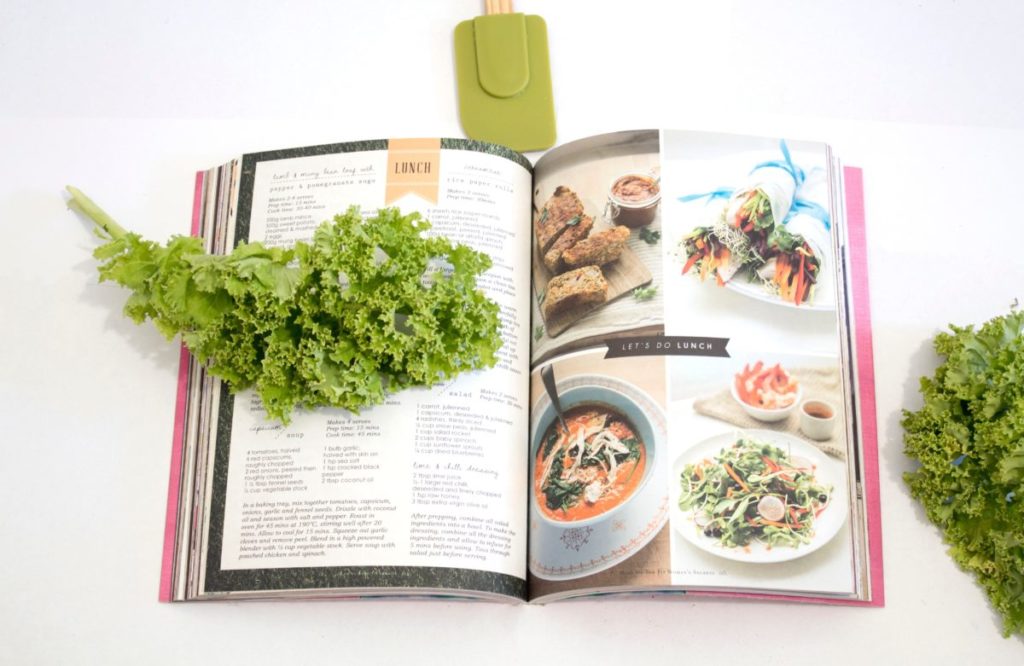 We’re not all born culinary creatives. So it’s just as well that the BBC Good Food site has a range of brilliant recipes for every occasion – including a budget recipe collection.
We’re not all born culinary creatives. So it’s just as well that the BBC Good Food site has a range of brilliant recipes for every occasion – including a budget recipe collection.
Plus, you can find loads of inspiration on Instagram and TikTok.

